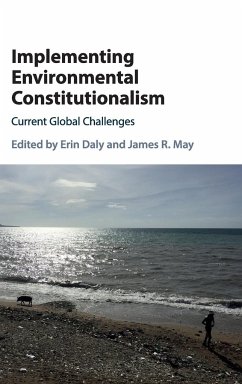
Complexity Economics for Environmental Governance

PAYBACK Punkte
64 °P sammeln!
In Complexity Economics for Environmental Governance, Jean-François Mercure reframes environmental policy and provides a rigorous methodology necessary to tackle the complexity of environmental policy and the transition to sustainability. The book offers a detailed account of the deficiencies of environmental economics and then develops a theory of innovation and macroeconomics based on complexity theory. It also develops a new foundation for evidence-based policy-making using a Risk-Opportunity Analysis applied to the sustainability transition. This multidisciplinary work was developed in pa...
In Complexity Economics for Environmental Governance, Jean-François Mercure reframes environmental policy and provides a rigorous methodology necessary to tackle the complexity of environmental policy and the transition to sustainability. The book offers a detailed account of the deficiencies of environmental economics and then develops a theory of innovation and macroeconomics based on complexity theory. It also develops a new foundation for evidence-based policy-making using a Risk-Opportunity Analysis applied to the sustainability transition. This multidisciplinary work was developed in partnership with prominent natural scientists and economists as well as active policy-makers with the aim to revolutionize thinking in the face of the full complexity of the sustainability transition, and to show how it can best be governed to minimize its distributional impacts. The book should be read by academics and policy-makers seeking new ways to think about environmental policy-making.














